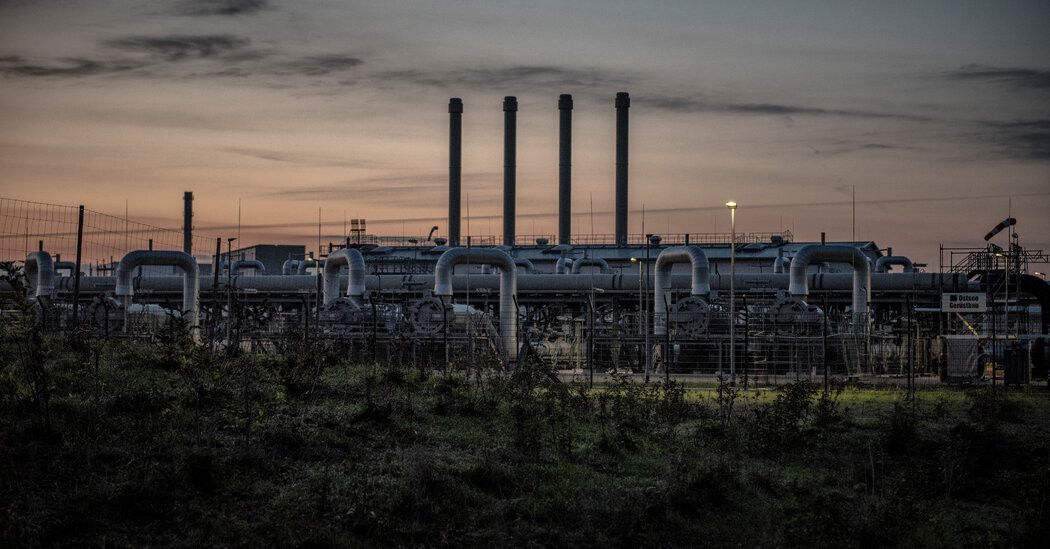

Ursula von der Leyen, president of the European Commission, announced a proposal meant to ramp up pressure on Moscow.
The European Union’s executive arm unveiled its latest package of sanctions against Russia, aiming to apply pressure to President Vladimir V. Putin by damaging the nation’s energy and banking sectors.
The sanctions proposed on Tuesday — which still need to be debated and passed by member states — would ban transactions with the Nord Stream pipelines, hoping to choke off future flows of energy from Russia into Europe.
They would lower the price cap at which Russian gas can be purchased on global markets, hoping to chip away at Russian revenues.
And they would hit both Russian banks and the so-called “shadow fleet,” old tanker ships, often registered to other countries or not registered at all, that Moscow uses to covertly transport and sell its oil around the world to skirt energy sanctions. The new measures would blacklist a new batch of ships that are being used in this way.
The proposal is the 18th sanctions package to come out of Brussels since Russia’s full-scale invasion of Ukraine. Taken as a whole, the measures are a sweeping effort to threaten Russian economic might and morale at a critical juncture in the war.
The announcement comes as peace talks between Russia and Ukraine stall. Despite pressure from the Trump administration to work toward a cease-fire, the latest round of talks between the two sides, earlier this month in Istanbul, created little result outside of another agreement to swap prisoners.



